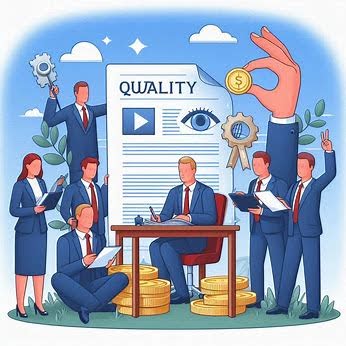Will ChatGPT Kill Blogging?
As artificial intelligence continues to evolve, the rise of tools like ChatGPT has led many to question the future of various industries, including blogging. With the ability to generate human-like text, assist with research, and even offer content ideas, the potential of AI in content creation is undeniable. However, does this mean that blogging, as we know it, is on the brink of extinction? Let’s explore how AI, including ChatGPT, could impact blogging and whether it will render this practice obsolete.
Find Out How To Make Money As A Full-Time Writer/Blogger Guide
The Rise of AI in Content Creation
ChatGPT and similar AI models have made significant strides in content creation. They can generate articles, assist with editing, and even tailor content for specific audiences. AI can work efficiently, producing text in a fraction of the time it would take a human writer. For instance, content marketers use AI tools to generate blog ideas, drafts, and even full-length articles, providing a more streamlined and less time-consuming process.
This has led some to believe that AI could replace bloggers altogether. After all, if AI can produce text quickly and efficiently, why would anyone need to spend time writing a blog post?
The Human Touch: Creativity, Emotion, and Authenticity
Despite the advancements in AI, human bloggers still hold an important advantage: creativity and authenticity. AI may be able to produce grammatically correct and well-structured content, but it struggles to capture the nuances of human experience, emotion, and personal stories. Blogging is often about building a unique voice and fostering a connection with readers, something that is hard to replicate with AI.
While AI can generate content based on data, it lacks personal insights and the ability to create truly engaging narratives. Blogs that focus on personal experiences, storytelling, and nuanced opinions are areas where human writers continue to excel. Readers often value authenticity, and a robot-generated post can lack the warmth and personality that make a blog truly relatable.
Find Out How To Make Money As A Full-Time Writer/Blogger Guide
AI as a Tool, Not a Replacement
Rather than replacing bloggers, tools like ChatGPT can serve as powerful aids for content creation. Many bloggers already use AI to improve their writing process—whether by brainstorming ideas, editing for grammar, or speeding up research. AI can assist bloggers in overcoming writer’s block, generating outlines, or even optimizing content for SEO.
For example, a blogger might use ChatGPT to draft a quick post, which they can then refine, adding their unique voice and personal touch. In this way, AI becomes a tool that enhances the blogging process, allowing writers to focus on what truly matters: creativity and connecting with their audience.
Evolving Trends in Blogging
Blogging is also evolving, with many bloggers integrating multimedia content such as videos, infographics, and podcasts to keep their content engaging. ChatGPT, along with other AI tools, may play a role in content creation across various formats, but human bloggers will continue to adapt and innovate, exploring new ways to engage with readers.
The future of blogging might not involve a direct competition between AI and human writers, but rather a collaboration. As AI continues to improve, it will help bloggers streamline their workflow, enhance their content, and stay competitive in a digital world that’s always evolving.
Find Out How To Make Money As A Full-Time Writer/Blogger Guide
The Future of Blogging in the Age of AI
So, will ChatGPT kill blogging? The answer is no. Instead, it will likely enhance and transform the way bloggers create content. AI is a tool, not a replacement, for human creativity and storytelling. Blogging will continue to thrive, but it may look different than it does today, with more integration of AI-powered tools to support bloggers.
The real value in blogging will always lie in the unique voice, creativity, and connection that human bloggers bring to the table—something that AI, no matter how advanced, cannot replace.







